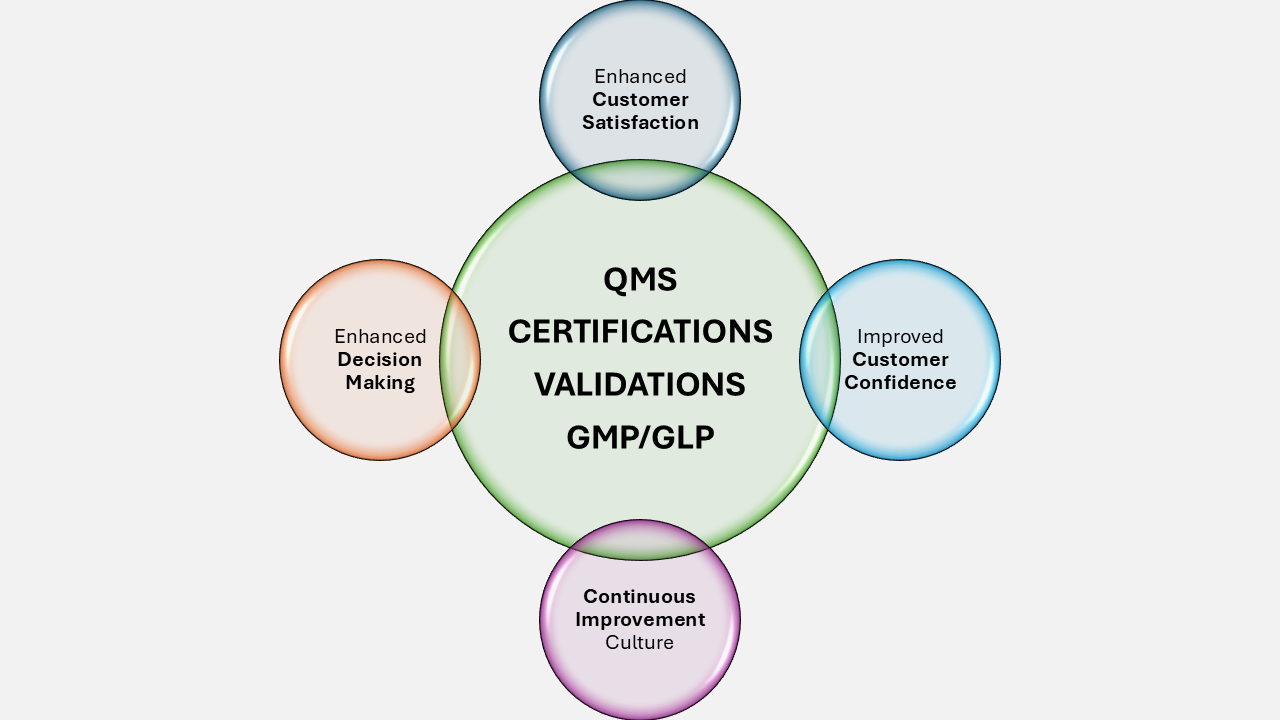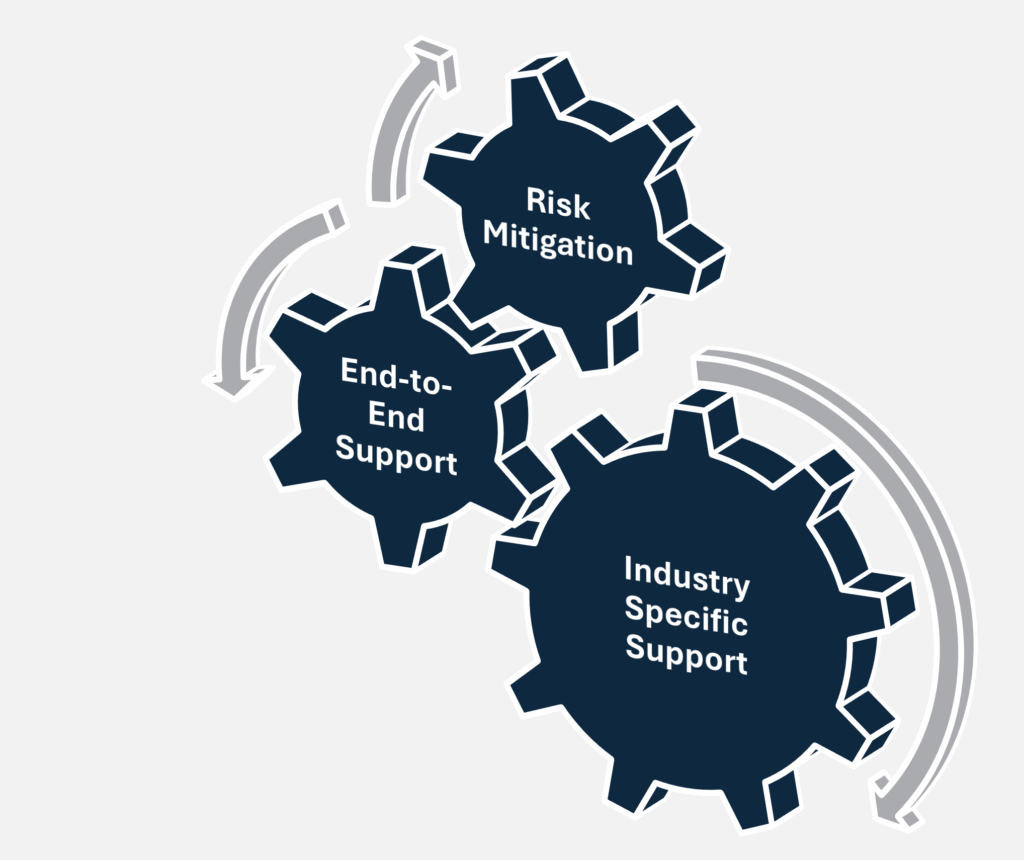
Small and medium enterprises (SMEs) form the backbone of Zimbabwe’s economy, contributing approximately 60% of the country’s GDP and employing over 5.7 million people, according to the Reserve Bank of Zimbabwe. Yet, Zimbabwean SMEs grapple with challenges such as economic volatility, regulatory complexity, and competition from imports. A Quality Management System (QMS)—a structured framework to standardize processes and ensure compliance—offers a proven solution. This blog explores why QMS adoption is critical for SMEs in Zimbabwe, supported by verified global and local case studies that demonstrate tangible benefits like cost reduction, market access, and operational efficiency.
What is a QMS?
A Quality Management System (QMS) is a structured framework of policies, processes, and procedures designed to ensure consistent product/service quality and regulatory compliance. Internationally recognized standards like ISO 9001, HACCP, and GlobalG.A.P. provide guidelines for implementation.
For SMEs, a QMS is not just about certification—it’s a strategic tool to:
Reduce waste and operational costs.
Meet local and international regulatory standards.
Access new markets and attract investors.
Foster a culture of continuous improvement.
1. Regulatory Compliance: Avoiding Penalties and Building Trust
Zimbabwean SMEs must comply with regulations from bodies like the Standards Association of Zimbabwe (SAZ) and international standards for exports. Non-compliance risks fines, product recalls, and reputational damage.

Global Example: Kakuzi PLC (Kenya)
Kenyan agribusiness Kakuzi, a major exporter of avocados to Europe, faced stringent EU food safety regulations. In 2020, the company achieved GlobalG.A.P. certification, a QMS standard for sustainable agriculture. This certification ensured compliance with EU pesticide and hygiene standards, leading to a 35% surge in avocado exports to Europe by 2021. Kakuzi’s success underscores how QMS helps SMEs meet international benchmarks, even in highly regulated sectors.
Local Example: Cairns Foods (Zimbabwe)
Cairns Foods, a Harare-based producer of peanut butter and cereals, struggled with inconsistent product quality and frequent recalls. After implementing HACCP (Hazard Analysis Critical Control Points)—a QMS for food safety—the company reduced recalls by 90% and secured contracts with regional retailers like Pick n Pay and SPAR. According to a 2019 report in The Herald, Cairns Foods’ compliance with SAZ standards was pivotal in rebuilding customer trust.
2. Cost Reduction: Streamlining Operations
SMEs often operate on thin margins, making waste reduction critical. A QMS identifies inefficiencies in workflows, material usage, and labor, translating to significant cost savings.
Global Example: SQ Group (Bangladesh)
Bangladesh’s SQ Group, a garment manufacturer supplying brands like H&M and Zara, adopted ISO 9001 to standardize production. By optimizing fabric-cutting processes and reducing defects, the company slashed material waste by 25% and increased export orders by 40% in 2021. This example highlights how QMS-driven efficiency can transform resource-strapped SMEs into competitive players.
Local Insight: Zimbabwean Mining Sector
Artisanal gold miners in Kadoma, partnering with NGOs, adopted ISO 45001 (occupational health and safety) to reduce workplace accidents. Documented safety protocols and equipment audits lowered accident rates by 40%, minimizing downtime and medical costs, as reported by the Zimbabwe Miners Federation in 2022.

3. Market Access: Unlocking Export Opportunities
Certifications like ISO 9001 or GlobalG.A.P. are often prerequisites for supplying retailers, exporters, or multinational corporations.
Global Example: Saitex International (Vietnam)
Vietnamese denim manufacturer Saitex, a supplier to brands like Everlane and Madewell, combined ISO 9001 with SA8000 (ethical labor certification) to meet Western buyers’ demands. This QMS integration reduced production lead times by 25% while ensuring fair wages and safe working conditions. A 2022 Vogue Business profile credited Saitex’s “clean denim” approach for securing partnerships with eco-conscious brands.
Local Example: Nhimbe Fresh (Zimbabwe)
Marondera-based Nhimbe Fresh, a horticulture SME, leveraged GlobalG.A.P. certification to penetrate the EU market. With support from ZimTrade, Zimbabwe’s trade development agency, the company increased berry exports to Europe by 50% in 2022, creating 200 rural jobs.
4. Competitive Advantage: Differentiating Through Quality
In markets saturated with cheap imports, QMS certifications signal reliability and quality, helping SMEs stand out.
Global Example: Pipefy (Brazil)
Brazilian tech startup Pipefy, which automates workflows for clients like IBM and Santander, implemented ISO 9001 to standardize customer onboarding. This move reduced client onboarding time by 30% and attracted a $45 million investment in 2020, as reported by TechCrunch.
Local Example: Karina Textiles (Zimbabwe)
Facing competition from Chinese imports, Bulawayo-based Karina Textiles adopted ISO 9001 to improve production consistency. The company won a $500,000 contract in 2020 to supply uniforms to Zimbabwe’s Ministry of Health, as noted in The Chronicle.
5. Operational Resilience: Sustaining Growth Amid Uncertainty
A QMS fosters adaptability by documenting processes, reducing dependency on individual employees, and enabling scalability.

Global Example: Suntech Energy Solutions (South Africa)
Cape Town-based Suntech, a solar energy SME, used ISO 9001 to standardize installations and maintenance. Customer complaints dropped by 60%, and the company secured a $2 million government tender in 2021 to electrify rural schools, according to the South African Bureau of Standards.
Local Insight: Zimbabwean Agri-Processors
Dairy SMEs in Chitungwiza, adopting HACCP with SAZ guidance, reduced milk spoilage by 35% during Zimbabwe’s prolonged power outages, ensuring consistent supply to retailers.
Conclusion
From Kakuzi’s avocado exports to Cairns Foods’ SAZ compliance, QMS adoption has proven transformative for SMEs globally and locally. For Zimbabwean businesses, investing in a QMS is not a luxury—it is a strategic imperative to navigate economic challenges, meet regulatory demands, and compete in global markets.
📞 Partner with RADQAL SYSTEMS
RADQAL SYSTEMS offers tailored QMS solutions for Zimbabwean SMEs, from SAZ compliance to ISO certification. Visit www.radqal.com/radqal-systems or WhatsApp +263 78 151 7576 to learn how we can help your business thrive.